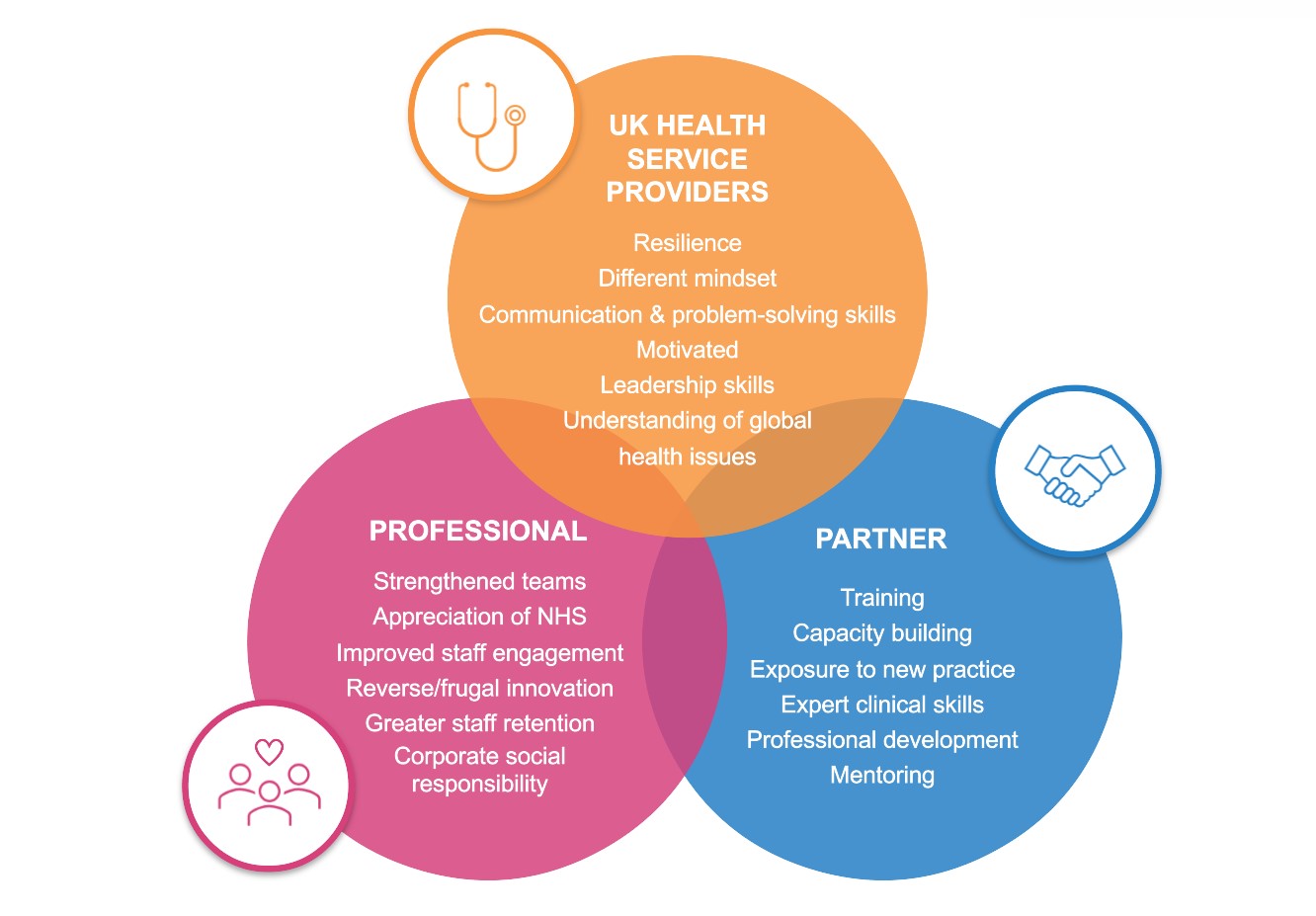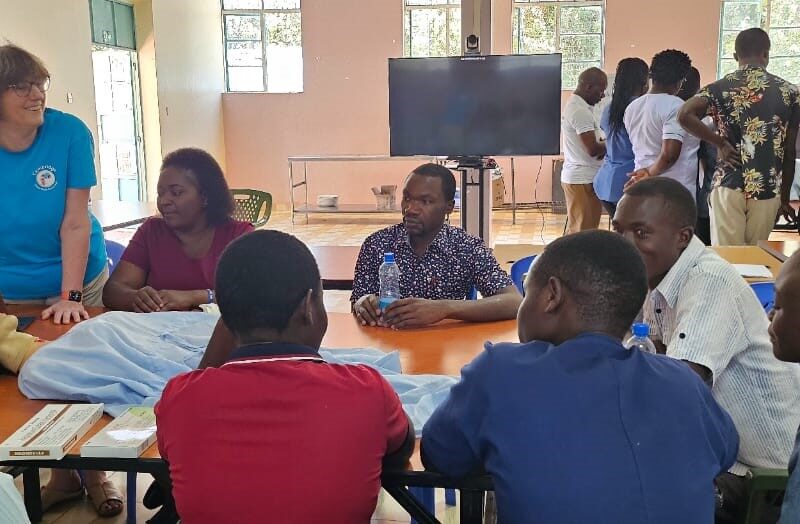Research into the UK’s Health Partnership Scheme found that the evidence ‘overwhelmingly demonstrated the effectiveness of the partnership and volunteering approach in supporting health worker capacity strengthening’, noting that ‘long-term volunteering and strategic short-term volunteering are most effective’.
CGHP’s core work focuses on delivering long-term partnerships with health institutions in low- and middle- income countries. Our programmes in Botswana date back to 2007, in Myanmar to 2013, and in Uganda to 2014. This provides time to build crucial relationships, to assess how we can best help, and to work together and embed good practice. The long-term nature of the partnerships demonstrates the mutual value and the strong communication and commitment between the partners.
Putting numbers on the value that partnerships deliver is difficult due to the availability and interpretation of data and the complexities of associating cause and effect. Ethical and practical issues can also arise when quantifying life or disability. However, Social Return on Investment Analyses (SROI) completed for two different partnerships found that for every £1 invested, at least £3 of socio-economic value for beneficiaries was delivered.
A partnership model where everyone benefits

Strengthening partners’ health systems
By introducing new techniques and procedures, our partners in low- and middle- countries can get more value out of their often overstretched resources. This may be from training on specific skills and techniques, early detection and diagnosis, setting out and codifying procedures, introducing new systems, encouraging inter-disciplinary team working, or a mix of these. Such interventions can then have a real and sustained impact on clinical practice and patient outcomes.
Developing members’ skills
CGHP members contribute their time, skills and expertise from all parts of the healthcare profession, including nurses, midwives, allied health professionals, resident doctors, consultants and academic and non-clinical staff. All have something to learn from working in more challenging and immediate situations, sometimes with very limited resources. Our members report improvements in their confidence, team working skills, leadership and flexibility, and often participate in partnerships again and again to build on these skills.
Strengthening the NHS
The experience that healthcare professionals gain from contributing to global health partnerships has a positive knock-on effect to the NHS. These staff develop valuable skills, applicable knowledge and a fuller appreciation of the facilities and support available in their home institutions. 97% of our members report that participating has developed their communication skills, 88% are better able to manage limited resources, and 84% are refreshed and feel more motivated at work.
We describe this as a partnership model where everybody benefits: it is a win for our overseas partners; a win for participants who return to the NHS with a refreshed view of healthcare and their role in it; and so a win for their employer.
Monitoring and evaluation
As well as ongoing monitoring and evaluation of the projects and partnerships CGHP supports, we also produce reports that looks at the impact of health partnership activity on partners, members and the wider NHS from an outside perspective. These Participant Impact Reports are researched using the Personal and Professional Development Questionnaires (PPDQs) that CGHP members and participants complete, as well as interviews, trip reports and grant scheme reports.
I was so honoured and felt so valued by my team when my consultant asked me to volunteer to El Salvador. Volunteering overseas was something I had never experienced before and I saw a completely different way of life. It was a personal adventure for me as well as a professional one. I am trying to initiate things in CUH that I learnt out there. The learning has been both ways, and that’s the great thing about health partnerships!
Nick Fletcher, Simulation Centre Technical Manager, CUH, volunteer in El Salvador


